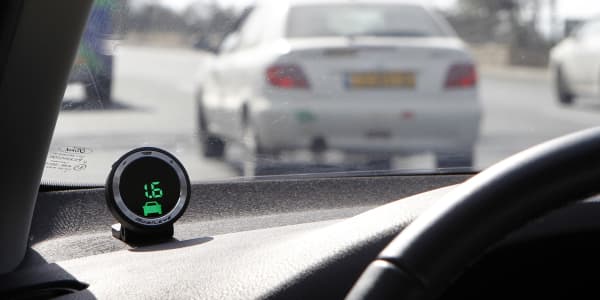Talk to any Israeli involved in the country's burgeoning high-tech sector and they'll name the ability to work across many different disciplines as one of its main strengths.
One field where that's very visible is the rapidly growing digital health and life sciences industry.
The sub-sector of personal health, often involving a combination of disciplines such as diagnostics, optics, software, analytics, machine learning and mobile communication was in 2016 by far the most active in the digital health field, according to a report from earlier this year by the non-profit Startup Nation Central that promotes Israeli high-tech.
Of the 385 digital health companies active in Israel last year, 45 percent was working on personal health tools. Many of these work with mobile phone technology, representing a holy grail of putting a medical diagnostics and analytics tool in the pockets of billions of people across the world.
These five Israeli companies are at various stages in making medicine mobile:
1. BrainMARC migraine predictor
Well, migraine prediction is just one of the brain activity tools that BrainMARC is working on but it's an app that the company is running clinical trials on at Haifa's Rambam medical center.
It says that it has been able to predict, "migraine attacks 1-2 days before they occurred, with approximately 90% sensitivity and specificity."
The idea is that sufferers purchase a $150 headset that carries out EEG's and then hook it up once a day to their mobile phones for a one-minute measurement that is analyzed for a $5/month subscription. They can then take measures to alleviate an oncoming attack.
The company predicts a potential $4.5 billion market in the U.S. and the EU. It's also working on a "learning enhancement product for children with ADHD, depression management, rehabilitation training and more."
2. Dario diabetes meter
It's the size of plastic lighter and fits straight into a mobile phone or tablet.
Dario calls itself, "the world's first personalized, pocket-sized smart meter that helps diabetics to monitor blood sugar levels and to manage their health through their smartphone."
The blood sugar level is read by an IOS or Android app and can be sent directly to caregivers. The app, approved by the FDA in 2016, can also send real-time alerts to family members, including GPS location.
Earlier this year, Dario raised $5.1 million to expand sales in the U.S. and Europe in a funding round led by OurCrowd Qure, the high-tech crowdfunding firm's digital health fund.
A raft of health insurers across the U.S. and Europe reimburse patients for Dario, a strong indication of its preventive potential.
3. Healthy.io urine scanner
Here's another company that claims a "first ever". In this case it's to "turn a smartphone into a clinical-scanner, allowing patients to conduct routine urinalysis."
Healthy.io provides an app, Dip.io, and a color card. Using their mobile phone camera, patients take a picture of a dipstick result against the background of the card, the app analyses the result and if necessary alerts caregivers to take action.
Other than some of the other companies, it relies solely on the mobile phone's own camera as its hardware component, apart from the color card.
It can be used among others to monitor pregnant women for high blood pressure and for alerting multiple sclerosis sufferers at risk of urinary tract and bladder infection. The app is currently awaiting FDA approval.
The company is also planning a kidney disease test and it has touted a similar camera-based test for skin disease.
4. Tyto Care diagnostic device
Tyto produces a device that connects to the mobile phone and has a stethoscope, an otoscope, used in ear examinations, a thermometer, and a high-resolution camera, FDA approved as needed.
Physicians can access the result via the cloud. It calls its product "The Missing Link in Telehealth" and says it enables doctors to give a "full examination – ears, lungs throat and more" remotely and without compromising the quality of the diagnosis. In the US it has partnered with Miami Children's Health System and Allied Physicians Group. Apart from its TytoHome product it also markets TytoPro to clinicians.
In the US it has partnered with Miami Children's Health System and Allied Physicians Group. Apart from its TytoHome product it also markets TytoPro to clinicians.
5. Beyond Verbal voice emotion analysis
Voice emotion what? What does that have to do with hardcore healthcare? Well, potentially it can address heart attack risk, for example.
Certainly one of the more out-there uses for a mobile phone at first glance. But none less than the Mayo Clinic tested the software and concluded in November last year that: "Voice features analysis holds the potential to assist physicians in estimating the pre-test probability of CAD [coronary artery disease] among patients presenting chest pain, especially in the setting of telemedicine."
The software can be installed on mobile phones or other devices with a microphone and analyze the intonation of the voice, not the content of what is being said, to monitor 'emotional wellbeing'.
The company has free emotion analysis apps for consumers and a paid one for clinicians.




